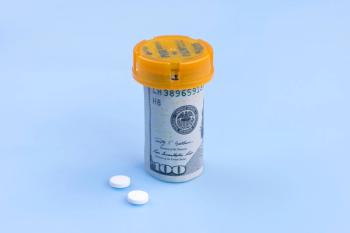
Are Rare Cannabinoids the Next CBD?
Recently, cannabidiol, or CBD—one of the nonpsychoactive compounds found in the hemp plant— has taken the health and wellness space by storm. Patients are increasingly seeking it out to help treat anxiety, depression, post-traumatic stress disorder, pain, and other ailments.
In the face of recent clinical trials and the FDA’s commitment to exploring these compounds, pharmacists are now having to consider ways to effectively counsel customers on the benefits and unknowns. But CBD is just one of over 200 known cannabinoids found in hemp. Rare cannabinoids, including cannabigerol (CBG), cannabigerolic acid (CBGA), and tetrahydrocannabivarin (THCV), exist in tiny quantities, making it difficult to extract them efficiently.
Drug Topics® recently interviewed Dennis O’Neill, president of BioMediCan, about the exciting treatment potential of rare cannabinoids, the unique and lucrative process that his company uses to biosynthesize them, and how these little-known compounds may soon disrupt the pharmaceutical industry.
Drug Topics®: Before we get into our topic, can you give us a bit of your professional background and your work with BioMediCan?
O’Neill: Sure, my background is over 25 years in investment banking experience. I've raised over $2 billion in early-stage capital. I've taken dozens of companies public, many of them in the biotech, life sciences, and health and wellness areas. I have spoken at over 75 conferences globally, mainly on private equity, venture capital, blockchain, small cap stocks, biotech, and mostly the US, Europe, and all across Asia.
Drug Topics®: First, can you talk about some of the basics of rare cannabinoids? What compounds are they and how do they compare to more recognizable compounds like CBD and THC?
O’Neill: Five years ago, very few people have even heard of CBD. [People only] heard about smoking pot. And all of a sudden, now 5 years later, there's CBD being sold at hundreds of thousands of gas stations all across the world, so it's gone mainstream very, very quickly.
The known health benefits are pretty significant. And basically, where we're at right now is that, what is really known in the market, is THC and CBD. Now [there are] over 200 cannabinoids that are known. The next generation of these compounds [CBG, CBGA, THCV, tetrahydrocannabivarinic acid (THCVA), cannabinol (CBN), cannabinolic acid (CBNA), and then tetrahydrocannabinolic acid (THCA)] will treat specific health conditions significantly better than CBD.
And those are the compounds that we're going after now. We have successfully biosynthesized CBG, CBGA, THCV, THCVA. And they have very, very significant health benefits, which are significantly better than CBD. And that's where the markets going. And that will be the next generation going into these markets.
And the problem that you end up with there is that these compounds show up in such minute amounts in the hemp plant that you can't really economically produce them through farming. I mean, you’d have to grow thousands upon thousands of acres to be able just to get enough THCV to make it work. With our process, we can produce tons of this stuff for pennies on the dollar. Higher quality, lower cost, sustainable.
And so, our goal here is to be able to make it as readily available, as affordable as possible to the masses at large so that they can get the health benefits from this. And of course, we're still going to make money. But I think by thinking big, and thinking that the more people you help, the more money you make. And I think that way - you can't make a lot of money if nobody can afford it. We have the ability to slash costs by 70%-90% from what current prices are. And that's where we believe that we're going to kind of own this market because we’ll have the highest quality and the lowest costs out there to be able to produce these.
Drug Topics®: And can you talk a little bit about your fermentation process that synthesizes these cannabinoids?
O’Neill: [I’m] not a scientist, but I'll pretend to be one here for a little bit. Basically, what we have is that we're utilizing a specialized yeast called yarrowia lipolytica. And yarrowia lipolytica is not well known, not well used, but we have 4 PhDs on our staff. And one of our colleagues has 20 years of experience working specifically with this yeast, which is more than anybody else in the world.
And at the same time, we also have research partnerships with the Institute of Genetics in Moscow, Clemson University, Imperial College London, and Denmark Technical University to where that we're able to utilize dozens of PhDs to help us develop a lot of this technology with these research partnerships.
The major issue going into the biosynthesis is olivetol acid. That has been the major problem...people [who] have been trying to biosynthesize rare cannabinoids [are] not producing, what they call OA. And the problem with that is, when you buy it on the market, it costs you like $5 to $7 a gram just without doing anything else, just with that. Because we can produce it directly from our yeast, we're at $1 or less per gram, that's with everything in.
Drug Topics®: And what do you see as the next steps for facilitating the use of these rare cannabinoids?
O’Neill: The unique position that we find ourselves in is that, if you look at all the federal and state regulations, it covers any product derived from cannabis or any product that produces THC or any psychoactive effects in any way, shape, or form – in that case, you fall under the federal and state regulations.
We do not touch the plant. We don't touch cannabis. We use a yeast, we produce 0.0% THC, so we are outside the federal and state regulations.
And what that does is it widens our world of distribution significantly more than anybody else. Those working in the CBD space are currently trying to differentiate themselves in the market by adding ashwagandha, probiotics, even adding turmeric, but by adding CBG or THCV and other beneficial rare cannabinoids, that will really make them different, and more importantly a significantly better product, so they're very, very interested in that on the global stage.
This interview has been edited for length and clarity.
Newsletter
Pharmacy practice is always changing. Stay ahead of the curve with the Drug Topics newsletter and get the latest drug information, industry trends, and patient care tips.























